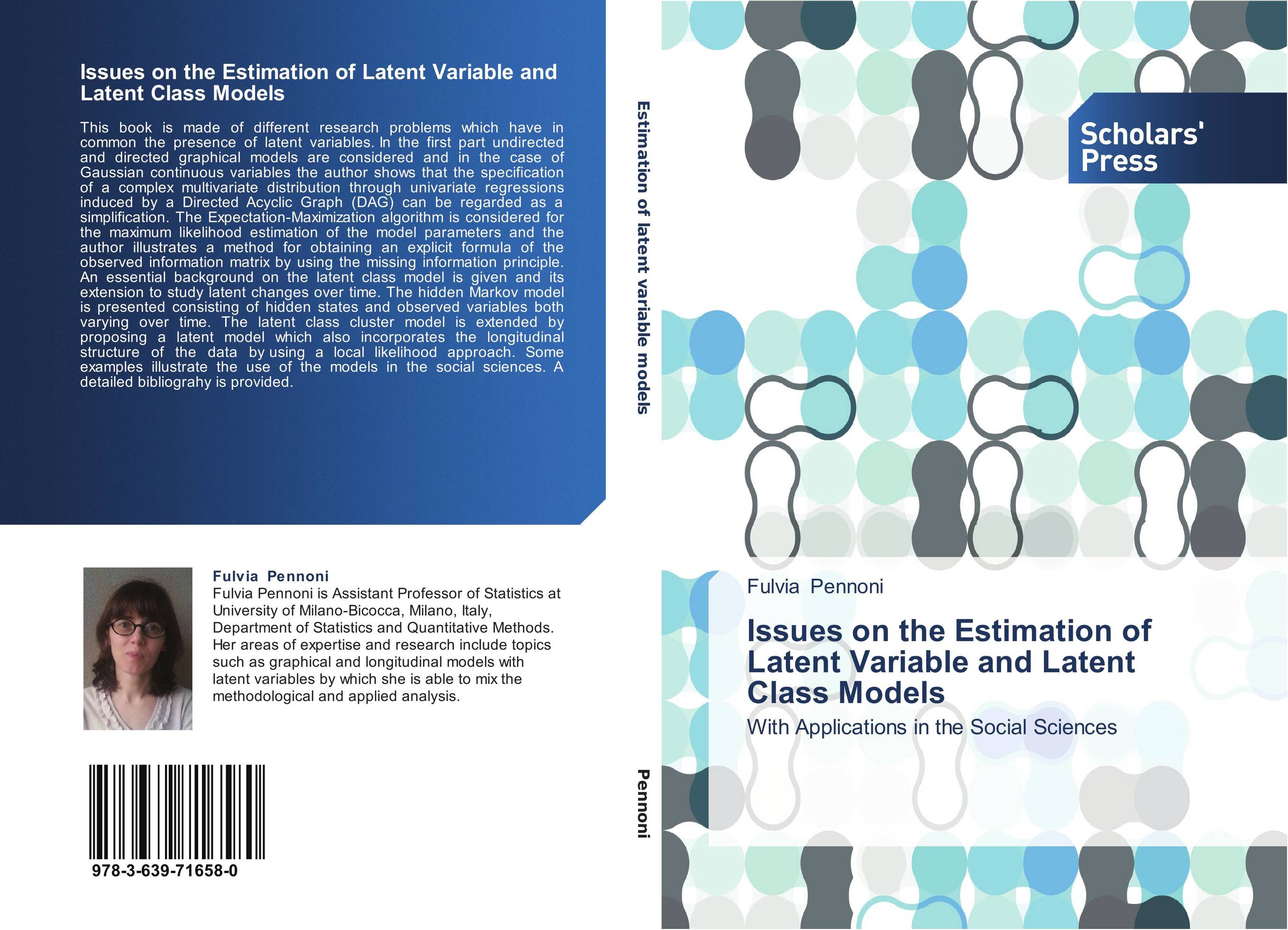| Поиск по каталогу |
|
(строгое соответствие)
|
- Профессиональная
- Научно-популярная
- Художественная
- Публицистика
- Детская
- Искусство
- Хобби, семья, дом
- Спорт
- Путеводители
- Блокноты, тетради, открытки
Issues on the Estimation of Latent Variable and Latent Class Models. With Applications in the Social Sciences

В наличии
| Местонахождение: Алматы | Состояние экземпляра: новый |

Бумажная
версия
версия
Автор: Fulvia Pennoni
ISBN: 9783639716580
Год издания: 2014
Формат книги: 60×90/16 (145×215 мм)
Количество страниц: 144
Издательство: Scholars' Press
Цена: 28613 тг
Положить в корзину
| Способы доставки в город Алматы * комплектация (срок до отгрузки) не более 2 рабочих дней |
| Самовывоз из города Алматы (пункты самовывоза партнёра CDEK) |
| Курьерская доставка CDEK из города Москва |
| Доставка Почтой России из города Москва |
Аннотация: This book is made of different research problems which have in common the presence of latent variables. In the first part undirected and directed graphical models are considered and in the case of Gaussian continuous variables the author shows that the specification of a complex multivariate distribution through univariate regressions induced by a Directed Acyclic Graph (DAG) can be regarded as a simplification. The Expectation-Maximization algorithm is considered for the maximum likelihood estimation of the model parameters and the author illustrates a method for obtaining an explicit formula of the observed information matrix by using the missing information principle. An essential background on the latent class model is given and its extension to study latent changes over time. The hidden Markov model is presented consisting of hidden states and observed variables both varying over time. The latent class cluster model is extended by proposing a latent model which also incorporates the longitudinal structure of the data by using a local likelihood approach. Some examples illustrate the use of the models in the social sciences. A detailed bibliograhy is provided.
Ключевые слова: criminal trajectories, directed acyclic graph model, latent class model, Expectation Maximization algorithm, standard errors



